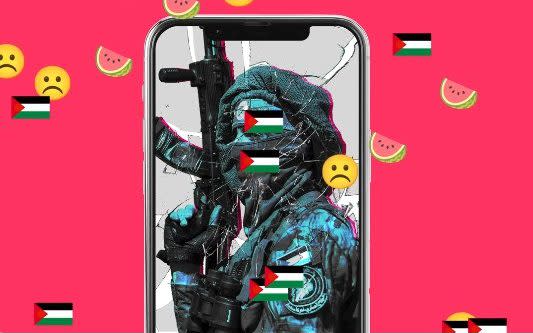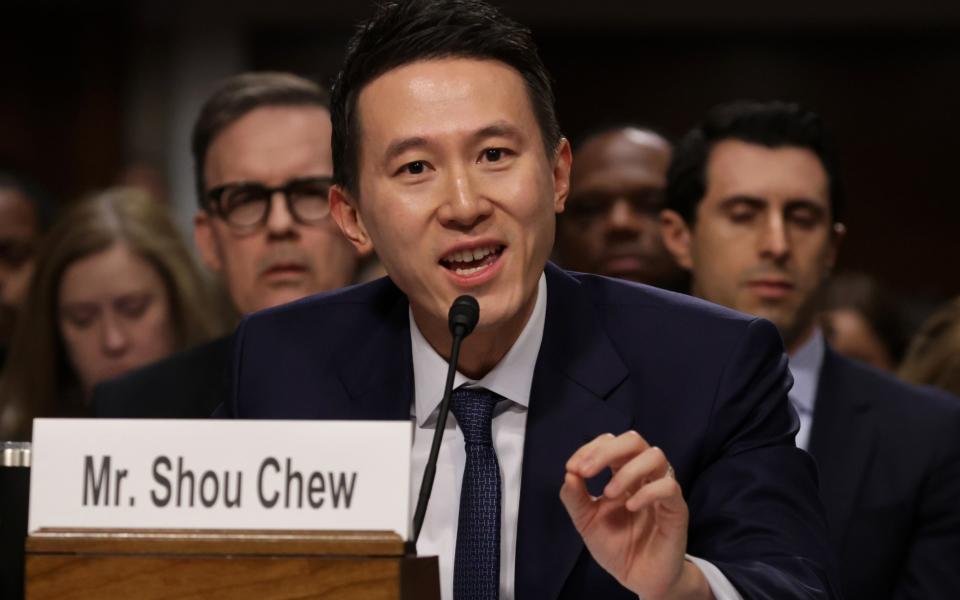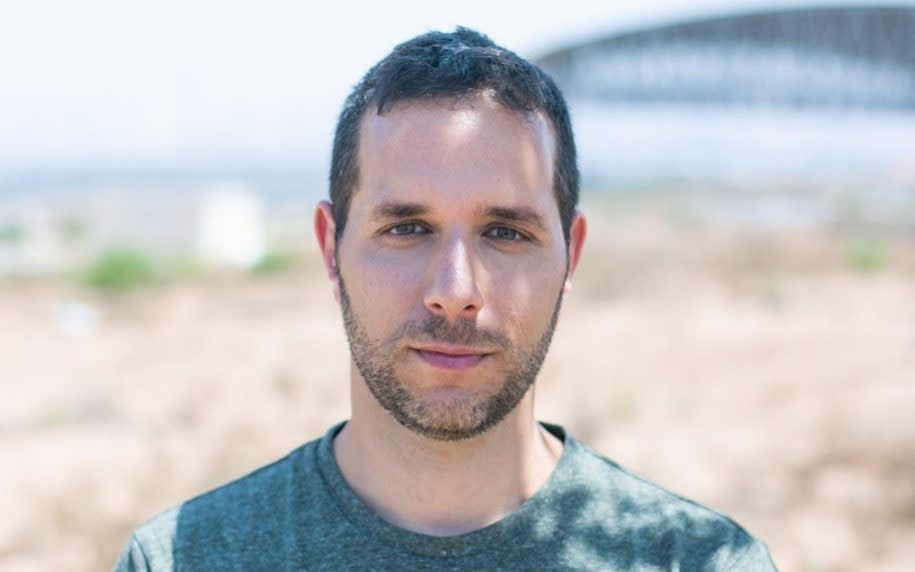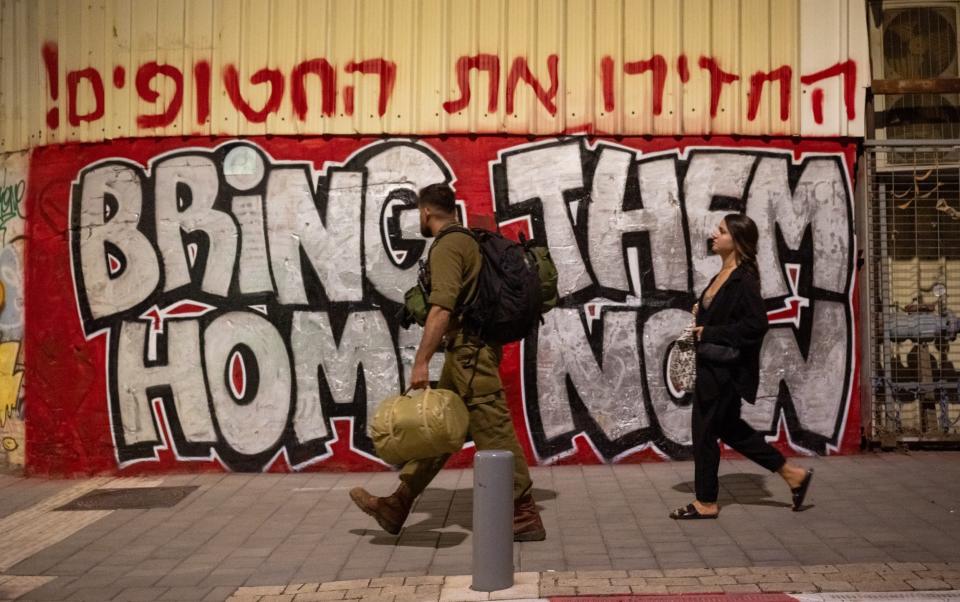How anti-Israel bias claims rocked TikTok

Members of TikTok’s Israel team woke up on the morning of October 7 to the sound of sirens blaring throughout Tel Aviv.
Scrambling down to bomb shelters while checking their phones, employees quickly realised the horror unfolding near the border with Gaza.
Videos of Hamas terrorists rampaging through southern Israel were going viral across social media – including on their app. Clips of paragliders circling over the Nova music festival and families begging for their lives were flooding their feeds.
Barak Herscowitz, at the time a government relations lead at TikTok in Israel, says the local team sprang into action: “It’s middle of the night in America, early morning in London, but some of the employees in TikTok rang all the bells, made all the right phone calls, and woke everyone up from their beds.”
A rapid crackdown on pro-Hamas accounts stemmed the initial “tsunami” of videos. For a brief moment, he was proud of the company’s response.
But the feeling did not last long. For some Israeli and Jewish employees at TikTok, the months since the massacre have left them increasingly disillusioned with the Chinese-owned company, prompting allegations of anti-Israel bias and questions over the company’s response to a surge of antisemitism online.
Insiders also allege that TikTok staff have used internal chat forums to express sympathy for groups attacking Israel.
The internal backlash from Jewish employees was cited by US senators as they grilled Shou Zi Chew, TikTok’s chief executive, in February about safety concerns with social media.

The tensions come as TikTok, which is owned by China’s Bytedance, faces a possible ban in the US after Joe Biden signed a law that will block the app unless it is sold within nine months.
According to Herscowitz, his frustrations began just days after Hamas’s brutal attack. A former adviser to ex-Israeli prime minister Naftali Bennett, Herscowitz was the main point of contact between the company and the government in Jerusalem.
However, he was quickly fielding complaints that TikTok – which has long had a policy of banning political advertising – had blocked a swathe of Israeli government ads, alleging its slogans were too overtly political amid the crisis. Adverts for the Israeli volunteering group for young adults – Taglit – were also blocked, he claims.
Soon after, a social media campaign set up by the families of the 250 hostages seized by Hamas encountered the same problem.
“It was just videos of the hostages before they were taken, mentioning how many days [they] are in captivity of Hamas – this was also banned from TikTok, saying it’s political,” he says of the Bring Them Home Now campaign.
At the same time, adverts for Palestinian aid, featuring graphic footage from the war, were approved. Herscowitz, who raised the discrepancy internally, says: “I just wanted things to be equal.”
Herscowitz adds that he also discovered troubling posts by some staff on the company’s internal messaging app, Lark.
Among the posts were individuals appearing to express support for Yemen’s Houthi rebels, who had just launched attacks on ships passing through the Red Sea to protest the military action in Gaza. A source says that one message read: “Get you a friend that loves you the way Yemen loves Palestine”.
Herscowitz alleges that the offending messages were largely written by members of TikTok’s trust and safety apparatus – the teams responsible for the site’s moderation.

In December, Herscowitz put his name on an internal memo, shared with senior executives at the company, that alleged the views of some of the company’s trust and safety team “very likely” influenced the moderation of the app.
Addressing the apparent block on hostage adverts, he wrote: “Labelling kidnapped babies, women, children, and elderly citizens who were taken from their beds by Hamas-ISIS as a ‘political issue’ is, at the very least, one-sided.”
After the note circulated around the company and later leaked to Fox News, Herscowitz was quizzed by senior managers but he said his concerns were never properly addressed.
“They tried to please me by saying they had removed some of the messages [from Lark],” he says. “The real problem is that those employees with such radical views are in such sensitive positions.”
In the aftermath of the complaints, a number of Jewish employees were also blocked from accessing the pro-Palestinian support group within Lark, he claims.
In January, Herscowitz quit TikTok, leaving a cryptic note on Twitter about his exit.
“Following the horrific attacks of 7 October, we immediately mobilised significant resources and personnel to bolster our moderation teams and platform safety, including increased capacity in Hebrew and Arabic,” a TikTok spokesman says.
“Allegations from a former employee, who neither worked in or with our safety or moderation teams, mischaracterise the significant efforts and resources we rapidly deployed to maintain the safety of our community and integrity of our platform.”
התפטרתי מטיקטוק.
אנחנו חיים בתקופה שבה עצם הקיום שלנו כיהודים וישראלים מותקף ובסכנה. בעידן כזה לא יציב, סדרי העדיפויות של אנשים מתחדדים. עם ישראל חי 🇮🇱💪— Barak Herscowitz (@BarakHer) January 29, 2024
Months after his departure and nearly six months into the war, which has left 1,400 Israelis and 34,000 Palestinians dead, TikTok quietly shifted its stance on the hostage adverts, allowing some previously blocked campaigns to run on the app.
Dorit Gvili, a Publicis One advertising executive who has organised the Bring Them Home Now campaign, says the group finally ran two TikTok campaigns where they were permitted to use the word “hostages” after months of talks.
However, the families have chosen not to run any new campaigns on TikTok as its anti-terror policies effectively block mentions of the word Hamas or any videos that are too “triggering”, she says.
“The word Hamas was not even allowed on the landing page.”
The group’s other campaigns have run on Google and Meta, she says, but “TikTok is the biggest and most influential platform”.

More than 130 people taken by Hamas on October 7 are still unaccounted for – among them the brother of an Israeli TikTok manager.
A TikTok spokesman said the company had been “working intensively” to bring the hostage campaign to its app. According to the company, TikTok previously blocked all war-related content, but it has since amended its rules to allow more humanitarian campaigns. The company says there is no policy blocking the word “hostage”.
Concerns over TikTok’s handling of the Israel-Hamas war have repeatedly been raised by US senators amid a recent drive to ban the app.
A new law, which forces China’s Bytedance to sell the app by next January, was signed by President Biden last month, citing security fears that the app could be influenced by Beijing.
But Senator Mitt Romney, the senior Republican and an advocate of the bill, also appeared to link the rapid passage of the law to alleged pro-Palestinian bias among TikTok users.
“Some wonder why there was such overwhelming support for us to shut down – potentially – TikTok,” the senator said on 3 May. “The number of mentions of Palestinians, relative to other social media sites – it’s overwhelmingly so among TikTok broadcasts.”
The remarks have sparked a backlash from free speech activists and risk further angering young voters who face losing access to their favourite app.
Last week, TikTok sued the US government over its attempt to ban the app, arguing that the new law is “punitive and discriminatory” and an “extraordinary intrusion on free speech rights”.
The company has repeatedly rejected claims it is biased against either side, arguing its posts simply reflect what its audience, dominated by younger millennials and Gen Z, is sharing.
In April, TikTok said it had removed 3.1 million pieces of content originating from Israel and Palestine since October, blocked 140,000 live streams in the region, and taken measures that resulted in a 234pc increase in the number of blocked comments that broke its rules.
Hate speech campaigners, however, argue that TikTok has made it harder to track anti-Israel posts after blocking researchers from a digital tool used to analyse hashtags being shared on the app.
Imran Ahmed, of the Centre for Countering Digital Hate, says TikTok had “quietly removed a vital data feature used to scrutinise the spread of digital hate”. TikTok has said the tool was being used to generate “flawed” research.
Herscowitz, for his part, believes the company’s handling of the war has added impetus to America’s TikTok crackdown – although he is not fully sold on the US ban.
“I am not quite sure banning TikTok is the right answer, it’s a last resort,” he says, “but transparency on their content, making sure their policies are being implemented equally and fairly, is very important to address as democratic countries”.
Since leaving, Herscowitz says he has had more than 150 messages of support, mostly on secure messaging apps, from other current and former employees. They are “doing their best to fight from within”, he says.

